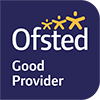Music
Curriculum Leader: Mr S Futcher
Subject Teachers:
- Mr S Futcher
- Ms B Hurley
Music is a world within itself, with a language we all understand
- Stevie Wonder
Curriculum Intent
Music is often mistaken as something we simply listen to, however music provides an all-encompassing experience, invigorating and enticing all of the senses at once. Learning to play music is the only activity known to stimulate and utilise every part of your brain at once. ‘Music is a universal language that embodies one of the highest forms of creativity’ (National Curriculum). Music education makes it possible to engage and inspire children to develop a love of music from all cultures and traditions, as well as their own musical skills.
As a subject, music teaches children about the world around us, and the traditions of different cultures and societies; as well as places and times. It also reveals where the music they listen to and love comes from and how it was created. By learning to perform individually and in groups it helps to increase their self-confidence, creativity and sense of achievement, as well as increasing their cooperation, concentration and communication skills. As students progress, they should develop a critical engagement with Music, enabling students to perform, compose and listen with discrimination to wide range of musical cultures, genres and traditions from a large variety of great composers.
Course Outline and Structure - Key Stage 3
Music at KS3 is taught as one lesson per week. During that 60 minutes, students will engage with music both practically and theoretically, developing a range of musical skills, knowledge and techniques that will prepare students for KS4 and beyond and will also develop valuable skills to support them in all other curriculum areas. Students are taught practical performance and composition skills, music theory and listening and analysis of music from great composers. There is a huge focus at KS3 on ensuring that the musical understanding and the relevant 'sound world' drives the lessons and these are then underpinned by skills based tasks.
Year 7 introduces students to the key devices and processes used in music making and creating, encouraging students to think outside the box and develop an understanding of music from different periods and cultures worldwide. We do this through looking at whole class singing, instruments of the orchestra, ukuleles, introducing Sibelius through rhythm and pitch tasks, form and structure, and calypso.
Year 8 builds on the knowledge and skills formed in year 7, and introduces using chords and melodies together in popular songs. Students develop understanding of Band workshop, blues, songwriting, Themes and variations and video game music. The second unit links directly with History studying the slave trade. Students are encouraged to be more creative this year with composing their own music and including improvisation into their performances.
Year 9 builds on analysis skills during listening-based tasks, and looks more closely at developing the processes for successful music making, including composition of film music and the use of music technology in film (using Mixcraft), as well as studying Popular solo artists, as well as British music and the development of popular music with an emphasis on covers and the importance of performance in groups.
Course Outline, Structure and Assessment - Key Stage 4 (Exam Board: OCR)
Students have five lessons per fortnight at KS4. During GCSE Music, students will complete three units of work, whilst engaging with five different Areas of Study.
The Areas of Study (AOS) are as follows:
AOS1 – My Music
AOS2 – The Concerto Through Time
AOS3 – Rhythms of the World
AOS4 – Film Music and Video Game Music
AOS5 – Conventions of Popular Music
The three units are as follows:
Unit 1: Integrated Portfolio - AOS 1: this includes one performance on the student’s chosen instrument and one composition, the style of which can be determined by the student. This a non-exam assessment and is worth 30% of the GCSE (15% performance and 15% composition).
Unit 2: Practical Portfolio - AOS 2/3/4/5: this includes one ensemble performance and one composition based on their own brief relating to one of the AOS 2/3/4/5. This a non-exam assessment and is worth 30% of the GCSE (15% ensemble performance and 15% composition to a brief).
Unit 3: Listening Test – AOS 2-5: this is a written listening exam which tests students’ aural recognition and their ability to answer questions based on what students will learn in AOS 2-5. This is an exam assessment and is worth 40% of the GCSE.
Extra-Curricular Activities / Clubs:
The music department is passionate about involving students in extra-curricular music making. We have a variety of clubs and groups including:
- Choir
- Instrumental Ensemble
- Keyboard Club
- Music Tech Club
We also have a range of peripatetic teachers available to teach instrumental lessons in Steel Pans and Brass instruments. Hampshire Music Service offer instrumental lessons in Woodwind and Strings, and The Rock and Pop Foundation offer instrumental lessons in Piano/Keyboard, Drums, Guitar and Voice.
As a department we produce two main concerts a year: Christmas and Summer (or Spring), as well as being heavily involved in the musical side of school productions. Last year, 'Joseph and the Amazing Technicolour Dreamcoat' was a huge success celebrating our talented students both musically and theatrically.
Key Website to Support Learning / Useful Resources:
Instrumental Lessons Information:
- Instrumental Lessons (Guitar/Drums/Piano/Keyboard/Singing): Rock and Pop Foundation
-
Instrumental Lessons (Strings/Woodwind/Steel Pans): Hampshire Music Service/Culture Mix

